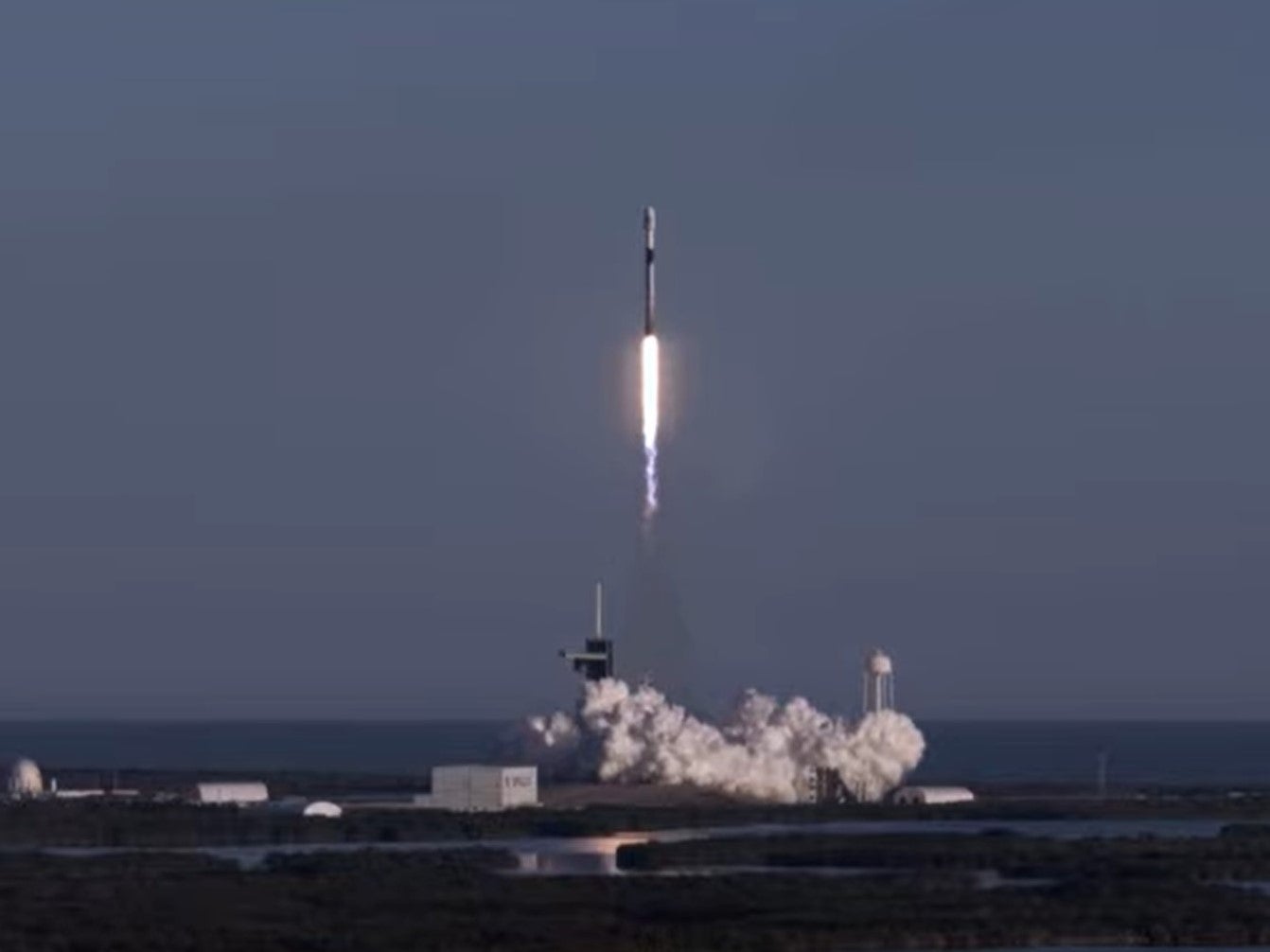SpaceX achieves record-breaking reuse of Falcon 9 rocket

Your support helps us to tell the story
From reproductive rights to climate change to Big Tech, The Independent is on the ground when the story is developing. Whether it's investigating the financials of Elon Musk's pro-Trump PAC or producing our latest documentary, 'The A Word', which shines a light on the American women fighting for reproductive rights, we know how important it is to parse out the facts from the messaging.
At such a critical moment in US history, we need reporters on the ground. Your donation allows us to keep sending journalists to speak to both sides of the story.
The Independent is trusted by Americans across the entire political spectrum. And unlike many other quality news outlets, we choose not to lock Americans out of our reporting and analysis with paywalls. We believe quality journalism should be available to everyone, paid for by those who can afford it.
Your support makes all the difference.SpaceX has achieved a record-breaking eighth reuse of one of its Falcon 9 rockets.
The first stage rocket launched from the Kennedy Space Center in Cape Canaveral, Florida, on Wednesday, carrying the latest batch of Starlink internet satellites into orbit.
Eight minutes after launch, the Falcon 9 rocket completed a successful landing aboard a drone ship in the Atlantic Ocean amid tricky conditions.
Winds were stronger than usual at the landing site, with SpaceX using the opportunity to “test the limits” of the rockets self-landing capabilities.
It marks a significant milestone towards making space travel more cost effective and accessible.
The launch was originally delayed due to “unfavourable weather” in the recovery area off the coast of Florida, yet SpaceX decided to push ahead with Wednesday’s launch despite the windy conditions.
The latest Starlink satellites join more than 800 already in orbit, which are already beaming high-speed broadband down to users on Earth.
SpaceX eventually plans to launch tens of thousands of Starlink satellites to provide global coverage, with CEO Elon Musk saying last week that funds generated from the venture will eventually be used to establish a human colony on Mars.
Join our commenting forum
Join thought-provoking conversations, follow other Independent readers and see their replies
Comments